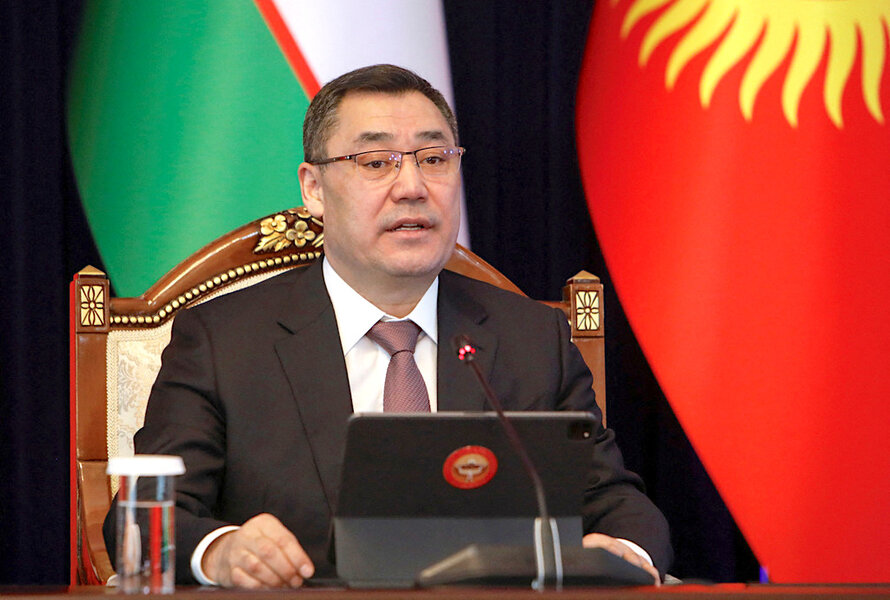Binding a nation’s wounds with forgiveness
Loading...
In a democracy, can forgiveness help mend political divides? The answer might be found in Kyrgyzstan, a Central Asian country of some 7 million people, with more than 100 ethnic groups and a history of overthrowing elected leaders.
Last Saturday, the current president, Sadyr Japarov, quietly brought together five former presidents in neutral territory, the United Arab Emirates, for a four-hour secret meeting “with the aim of strengthening national unity,” as he put it. Each of the five did not know ahead of time that they would be meeting.
By most accounts, the conclave went well. “For a long time, I have been harboring the idea that we can perhaps join forces and become one nation if we bring together all our presidents, who were initially elected by people and then came to a sad end,” Mr. Japarov wrote on his Facebook page.
He called on the Kyrgyz people to be “forgiving and set aside the hard feelings and complaints of the past.” One former president, Kurmanbek Bakiev, lives in Moscow after being found guilty in absentia over the killing of civilians during an uprising that ousted him in 2010. Another, Almazbek Atambayev, was only released from prison on Feb. 14.
A third, Askar Akayev, also lives in Moscow after being overthrown in the 2005 Tulip Revolution. A fourth, Sooronbai Jeenbekov, was forced to leave office in 2020. The country’s only female president, Roza Otunbayeva, served on an interim basis.
Mr. Japarov, who promised similar meetings of “reconciliation and accord,” said that he alone could not allow Mr. Bakiev, who faces a long prison sentence, back into the country. “The relatives of those who were killed should forgive at first,” he said. “If he comes, he will be taken into custody. We must abide by the decision of the court,” he said, citing a need for rule of law.
His main focus was to have enough harmony among these top politicians to convince the diverse population of Kyrgyzstan not to fall for the politics of division.
“My only thought was for the supporters of each president, for the inhabitants of the seven regions [of Kyrgyzstan] to concentrate [their energies] in one direction, to leave politics to one side, to think about the development of the nation, of the economy,” he said, according to his press secretary.
His grand and perhaps only symbolic gesture of political accord still needs to play out. The nation still needs to find a balance between legal justice and the healing effects of forgiveness. Yet with plenty of problems for this former Soviet state, Mr. Japarov offered this: “If we want to strengthen our sovereignty, independence and develop Kyrgyzstan, let’s put aside the past, our grievances and our complaints.”







